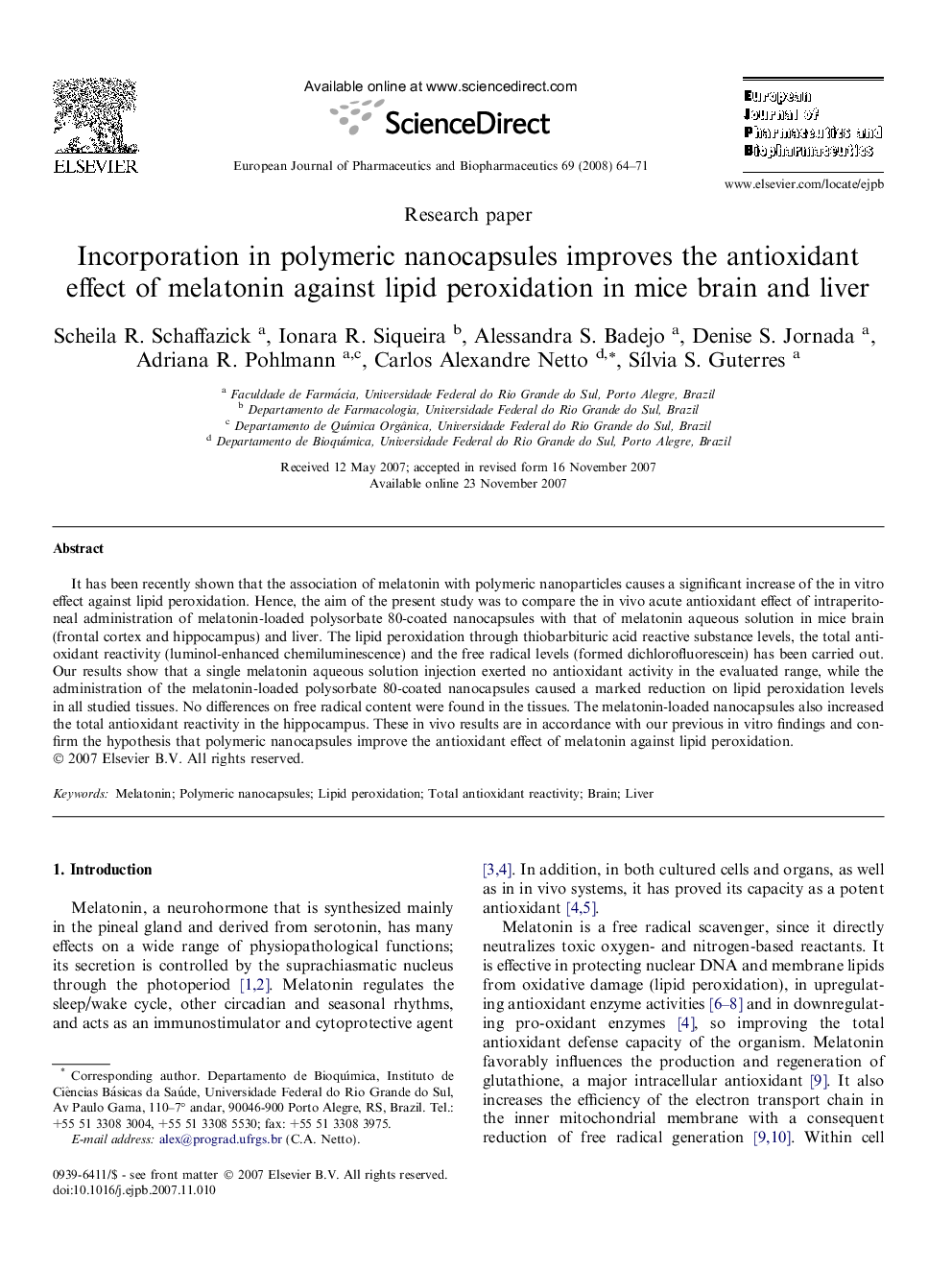| Article ID | Journal | Published Year | Pages | File Type |
|---|---|---|---|---|
| 2084773 | European Journal of Pharmaceutics and Biopharmaceutics | 2008 | 8 Pages |
It has been recently shown that the association of melatonin with polymeric nanoparticles causes a significant increase of the in vitro effect against lipid peroxidation. Hence, the aim of the present study was to compare the in vivo acute antioxidant effect of intraperitoneal administration of melatonin-loaded polysorbate 80-coated nanocapsules with that of melatonin aqueous solution in mice brain (frontal cortex and hippocampus) and liver. The lipid peroxidation through thiobarbituric acid reactive substance levels, the total antioxidant reactivity (luminol-enhanced chemiluminescence) and the free radical levels (formed dichlorofluorescein) has been carried out. Our results show that a single melatonin aqueous solution injection exerted no antioxidant activity in the evaluated range, while the administration of the melatonin-loaded polysorbate 80-coated nanocapsules caused a marked reduction on lipid peroxidation levels in all studied tissues. No differences on free radical content were found in the tissues. The melatonin-loaded nanocapsules also increased the total antioxidant reactivity in the hippocampus. These in vivo results are in accordance with our previous in vitro findings and confirm the hypothesis that polymeric nanocapsules improve the antioxidant effect of melatonin against lipid peroxidation.
